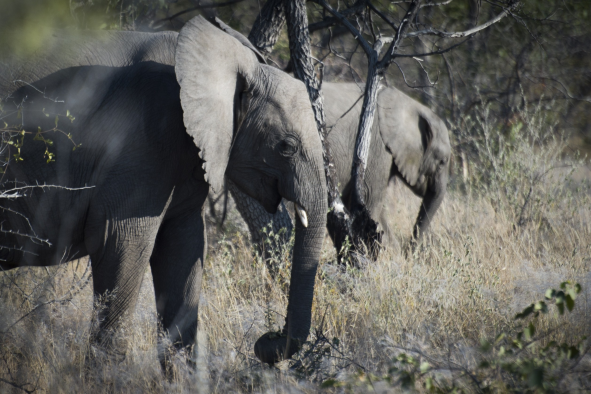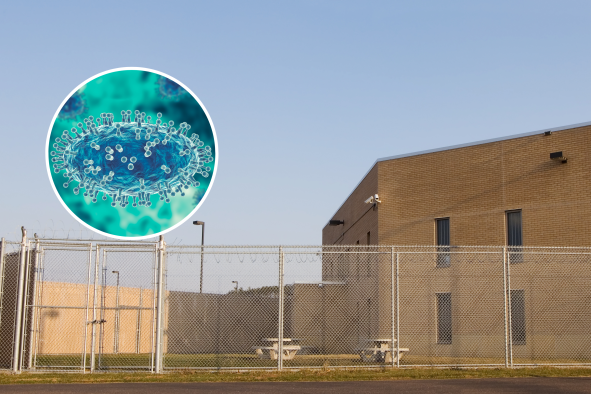The belief that aliens have visited Earth and may even live among us is not a new concept; it has persisted for centuries. But now this notion is gaining unprecedented traction in the U.S. and abroad, raising concerns about its potential impact on society.
In the U.S., belief in UFO sightings as evidence of alien life has surged from 20 percent in 1996 to 34 percent in 2022, with 24 percent of Americans reporting they have seen a UFO, according to a 2022 YouGov poll of 1,000 U.S. adult citizens. In short, this belief is no longer confined to the fringes.
In a recent study accepted for publication in the Proceedings of the International Astronomical Union, Tony Milligan, philosopher and senior research fellow at King's College London in England, said that the belief in alien visitors has evolved into a widespread societal concern.
"When you're dealing with populism, or this highly specialized variant of populism, you're dealing with a wave—a political tsunami," Milligan told Newsweek.
The shift in belief has gained such momentum that it is now influencing political discourse, particularly in the U.S., where the topic has garnered bipartisan attention.
"You don't worry about this stuff when it's 2 percent of the population... but you don't expect it to be reaching the floor of Congress," Milligan said.
The Pentagon's recent disclosure of information regarding Unidentified Anomalous Phenomena (UAPs) has only fueled public interest and speculation, though the issue of UFO disclosure has persisted across multiple administrations.
Hillary Clinton, during her 2016 campaign, expressed a desire to "open [Pentagon] files as much as I can," while Donald Trump suggested he would "think about" declassifying documents related to the notorious Roswell incident.
Milligan said that there are three primary dangers associated with the mainstream acceptance of these alien visitation narratives.
The first is an erosion of trust in government and institutions. Milligan said that the widespread belief in government cover-ups related to UFOs—held by over 60 percent of Americans—undermines trust in public institutions. This erosion of trust can have far-reaching consequences for democratic governance and is part of the wider problem of populism.
Secondly, the incorporation of UFO narratives into indigenous storytelling poses a risk to the preservation of original cultural meanings. "Fragments of the earliest tales are still there within indigenous storytelling, and along comes this UFO visitation narrative and it starts to overwrite that stuff," Milligan said.
As these alien narratives gain validation, the true cultural significance of indigenous stories may be lost.
"Squeezed through a New Age filter of 1960s counterculture, the narrative was flipped to value indigenous people as having once possessed advanced technology," Milligan wrote in a recent piece for The Conversation.
"Once upon a time, according to this view, every indigenous civilization was Wakanda, a fictional country appearing in American comic books published by Marvel Comics."
Finally, the proliferation of alien visitation tales creates noise that distracts from genuine scientific inquiry. At a time when scientists are making significant strides toward discovering microbial life beyond Earth—a potential milestone in human history—these conspiracy theories risk obscuring serious scientific efforts.
"These tales create so much background noise that it gets in the way of legitimate science communication," Milligan added.
The rise of social media, combined with politicians seeking marginal gains wherever possible, means that this problem is likely to grow. "None of these things are good for democratic societies. They're all bad, and they're all growing," Milligan said.
In light of these challenges, Milligan added that political figures should take a stand against the spread of alien visitation beliefs. "It would make sense for political figures to speak out about these things," he said.
Additionally, he added there should be efforts to protect scientific integrity and preserve authentic indigenous stories. "We can try and accelerate the process of recording stories that are transmitted orally before it becomes impossible further down the line to disentangle what's authentic from what's not authentic."
Ultimately, however, Milligan is not optimistic about reversing this trend. "You can't stop the wave," he added.
Do you have a tip on a science story that Newsweek should be covering? Do you have a question about aliens? Let us know via science@newsweek.com.
References
Milligan, T. (in press). Equivocal Encounters: Alien Visitation Claims as a Societal Problem. Proceedings of the International Astronomical Union.
Disclaimer: The copyright of this article belongs to the original author. Reposting this article is solely for the purpose of information dissemination and does not constitute any investment advice. If there is any infringement, please contact us immediately. We will make corrections or deletions as necessary. Thank you.



